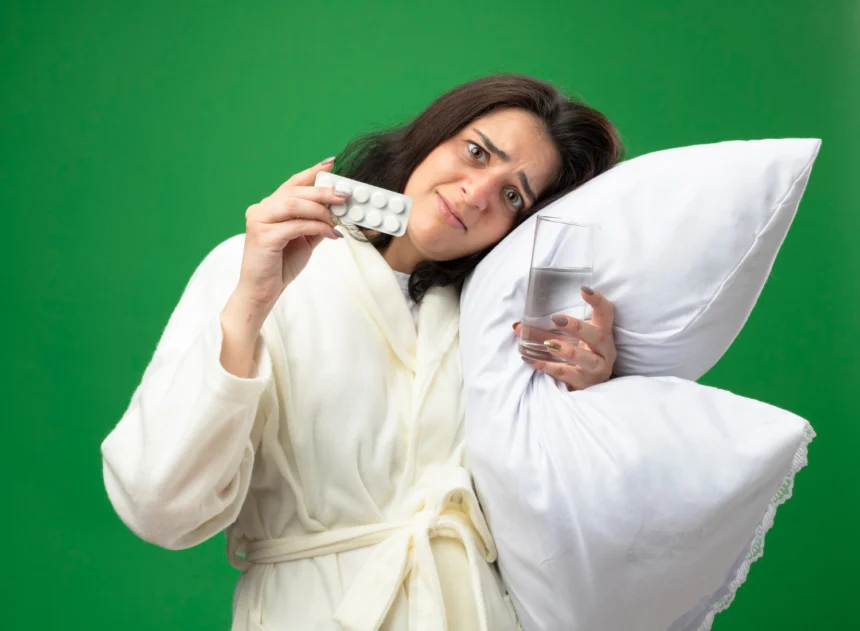Introduction to Sleep Hygiene
Sleep hygiene refers to the practices and habits that promote healthy sleep patterns. By implementing a comprehensive sleep hygiene checklist, you can improve the quality of your sleep and wake up feeling refreshed each morning.
Creating a Sleep-Inducing Environment
Optimizing Sleep Hygiene: Setting up the Bedroom for Quality Rest
Your bedroom should be a sanctuary for sleep. Keep it clean, clutter-free, and dedicated to rest and relaxation. Invest in a comfortable mattress and pillows that support your body properly.
Temperature and Lighting Adjustments
Maintain a cool, comfortable temperature in your bedroom and minimize exposure to bright lights, especially in the evening. Think about utilizing blackout curtains or an eye mask to eliminate any unwanted light.
Establishing a Consistent Sleep Schedule
Importance of Regular Sleep Patterns
Our bodies thrive on routine, so aim to go to bed and wake up at the same time every day, even on weekends. This assists in the regulation of your body’s internal rhythm, enhancing the overall quality of your sleep.
Tips for Maintaining a Schedule
Establish a nightly ritual that indicates to your body it’s time to relax before sleep. This may involve actions such as reading, enjoying a warm bath, or engaging in relaxation techniques.
Mind and Body Preparation for Sleep Hygiene
Sleep Hygiene with Effective Relaxation Techniques
Practice relaxation techniques such as deep breathing, progressive muscle relaxation, or meditation to calm your mind and prepare your body for sleep.
Minimizing Electronic Device Usage for Better Sleep Hygiene
Minimize exposure to electronic screens, such as phones, tablets, and computers, for at least an hour before going to bed. The blue light emanating from these gadgets can disrupt the natural production of melatonin in your body, thus potentially hindering your ability to easily fall asleep.
Dietary Considerations for Better Sleep Hygiene
Foods That Promote Sleep Hygiene
Certain foods, such as bananas, almonds, and turkey, contain sleep-promoting nutrients like magnesium and tryptophan. Incorporate these foods into your evening meals or snacks to help prepare your body for sleep.
Foods to Avoid Before Bedtime
Steer clear of caffeine, heavy or spicy foods, and large meals close to bedtime, as these can disrupt your sleep and lead to discomfort during the night.
The Role of Exercise in Sleep Hygiene
Benefits of Regular Physical Activity
Regular exercise can improve the quality of your sleep by reducing stress and anxiety, promoting relaxation, and helping regulate your sleep-wake cycle.
Timing Exercise for Optimal Sleep
Try to finish your workouts at least a few hours before bedtime to give your body time to wind down. Avoid vigorous exercise too close to bedtime, as it can leave you feeling too energized to sleep.
Managing Stress and Anxiety
Stress Reduction Techniques
Find healthy ways to manage stress and anxiety, such as practicing mindfulness, journaling, or talking to a therapist. Stress and anxiety can interfere with your ability to fall asleep and stay asleep, so it’s essential to address them proactively.
Creating a Bedtime Routine
Establish a calming bedtime routine that helps you relax and unwind. This could include activities like taking a warm bath, reading a book, or listening to soothing music.
The Impact of Sleep Environment on Quality of Sleep Hygiene
Choosing the Right Mattress and Pillows
Invest in a high-quality mattress and pillows that provide adequate support for your body. The right bedding can make a significant difference in the quality of your sleep.
Importance of Decluttering the Bedroom
Maintaining a clean and organized bedroom is crucial for promoting relaxation and facilitating restful sleep. A clutter-free environment fosters peace of mind and enhances sleep quality.
Limiting Stimulants and Substances
Effects of Caffeine and Alcohol on Sleep Hygiene
Limit your intake of caffeine and alcohol, especially in the hours leading up to bedtime. Both substances can interfere with your sleep and disrupt your sleep cycle.
Strategies for Reducing Consumption
If you’re sensitive to caffeine, avoid consuming it after midday. Limit alcohol consumption and try to finish drinking at least a few hours before bedtime to minimize its impact on your sleep.
Creating a Relaxing Bedtime Ritual
Importance of Winding Down Before Bed
Give yourself time to unwind and relax before bedtime. Engage in calming activities that help signal to your body that it’s time to sleep.
Activities to Promote Relaxation
Experiment with different relaxation techniques to find what works best for you. This could include gentle stretching, reading, practicing gratitude, or enjoying a warm cup of caffeine-free tea.
Understanding the Role of Sleep Disorders
Common Sleep Disorders
Be aware of common sleep disorders such as insomnia, sleep apnea, and restless leg syndrome. If you suspect you may have a sleep disorder, seek medical attention for proper diagnosis and treatment.
Seeking Professional Help When Necessary
If you’re struggling with persistent sleep issues, don’t hesitate to reach out to a healthcare professional for help. They can offer personalized advice and treatment options to improve your sleep quality.
The Link Between Mental Health and Sleep Hygiene
Effects of Poor Sleep on Mental Well-being
Poor sleep can have a significant impact on your mental health. Chronic sleep deprivation is linked to an increased risk of anxiety, depression, and mood disorders. When you don’t get enough restorative sleep, it can impair your ability to cope with stress, regulate emotions, and make sound decisions. Prioritizing good sleep hygiene is essential for maintaining positive mental well-being.
Importance of Addressing Mental Health Issues
If you’re struggling with mental health issues, it’s crucial to prioritize both your sleep hygiene and seek professional support. Addressing underlying mental health concerns can improve your overall sleep quality and vice versa. Therapies such as cognitive-behavioral therapy for insomnia (CBT-I) can be highly effective in treating sleep disorders and improving mental health outcomes.
Monitoring and Evaluating Sleep Habits
Maintaining Optimal Sleep Hygiene: Starting with a Sleep Diary
Track your sleep habits and patterns by keeping a sleep diary. Note the time you go to bed, how long it takes you to fall asleep, any nighttime awakenings, and how you feel upon waking in the morning. This can help identify trends and areas for improvement.
Improving Sleep Hygiene: Adjusting Habits as Needed
Review your sleep diary regularly and make adjustments to your sleep hygiene habits as needed. Pay attention to factors like bedtime routines, sleep environment, and lifestyle choices that may be impacting your sleep quality.
Technological Aids for Better Sleep
Enhance Sleep Hygiene with Effective Sleep Tracking Apps
Consider using sleep tracking apps or wearable devices to monitor your sleep patterns. These tools can provide valuable insights into your sleep quality and help you identify areas for improvement.
White Noise Machines and Other Devices
White noise machines, humidifiers, and aromatherapy diffusers can create a soothing sleep environment and mask disruptive noises. Experiment with different devices to find what works best for you.
Conclusion
Incorporating the practices outlined in this sleep hygiene checklist can help you wake up feeling refreshed and rejuvenated each morning. By prioritizing consistent sleep schedules, creating a relaxing sleep environment, and addressing lifestyle factors that impact sleep quality, you can improve your overall well-being and quality of life.
FAQs
How long does it take to see improvements in sleep quality by implementing these sleep hygiene practices?
While individual results may vary, many people notice improvements in their sleep quality within a few weeks of adopting consistent sleep hygiene habits.
Is it okay to take sleep aids or supplements to improve sleep quality?
It’s best to consult with a healthcare professional before using sleep aids or supplements, as they may have side effects or interact with other medications.
Can children benefit from practicing good sleep hygiene?
Yes, establishing healthy sleep habits in childhood sets the stage for a lifetime of restful sleep and improved overall health.
What should I do if I still struggle with sleep despite following these recommendations?
If you continue to experience sleep difficulties, consider seeking guidance from a sleep specialist or healthcare provider who can offer personalized advice and treatment options.
Are naps beneficial for overall sleep health?
While short naps can be refreshing, excessive or prolonged napping during the day can disrupt nighttime sleep patterns. It’s best to limit naps to 20-30 minutes and avoid them late in the afternoon or evening.


